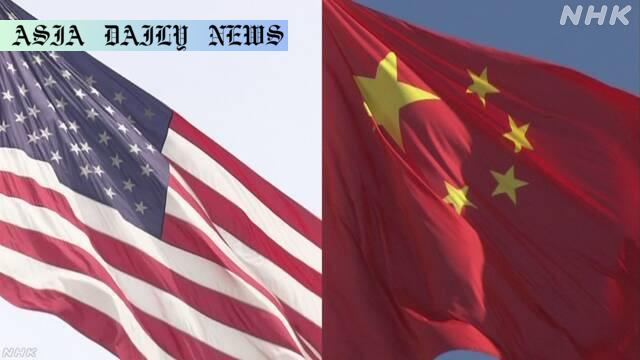US-China trade talks to spotlight Vice Premier He Lifeng’s participation amid trade restrictions and rare earth export issues.
US-China trade talks will take place in London from June 8 to 13.
Vice Premier He Lifeng will represent China, addressing key trade issues.
Focus includes rare earth export restrictions and tariffs rollback agreements.
Observers await solutions to economic tensions and bilateral trade deficits.

Overview of the US-China Trade Talks
The US-China trade talks in London, scheduled from June 8 to 13, mark a pivotal moment in the ongoing trade negotiations between the two major global economies. Following a recent agreement between US President Donald Trump and Chinese President Xi Jinping, the discussions are aimed at making progress on existing trade discrepancies. While previous agreements included commitments like lowering additional tariffs, implementation has faced hurdles, particularly with debates surrounding rare earth exports and broader trade imbalances. China will send Vice Premier He Lifeng to lead their delegation, signaling the importance of the dialogue for Beijing.
The Context: Rare Earth Exports and Implementation Challenges
Rare earth exports have become a critical sticking point in US-China relations. These metals are essential components in various industries, including technology and defense, which makes their trade regulation a sensitive issue. Washington claims Beijing has delayed exports despite previous agreements. In contrast, China’s commerce ministry announced it has approved applications for compliant exports while reiterating its willingness to engage in constructive dialogue. The upcoming discussion in London offers an opportunity for both countries to address these tensions substantively.
Key Delegates and Their Roles
The US trade delegation comprises Treasury Secretary Scott Bessent, Commerce Secretary Howard Lutnick, and Trade Representative Jamieson Greer, tasked with leading negotiations on behalf of Washington. Their focus will likely include reducing the US trade deficit with China and ensuring adherence to recent trade agreements. The Chinese vice premier, known for his expertise in economic policies and financial management, will lead Beijing’s delegation. The presence of such high-ranking officials underscores the critical nature of the summit.
The Importance of Cooperation in Global Trade
Global observers are closely monitoring the talks as they hold significant ramifications for the broader global economy. The US-China trade dispute affects not only bilateral relations but also the stability of international markets. Rare earth export issues, for example, have far-reaching effects on industries that depend on these materials. Finding mutually beneficial resolutions would help alleviate volatility in the global economy and pave the way for more stable trade relations.
Conclusion: What’s at Stake?
The success or failure of these talks will have a substantial impact on the global economic landscape. Both nations have expressed a willingness to engage in dialogue, yet key issues remain unresolved. The discussions in London represent a critical opportunity for the US and China to not only resolve their trade differences but also set a precedent for how two leading economies can collaborate despite competing interests. The outcomes of the talks will be closely analyzed by policymakers, economists, and industries worldwide.
Commentary
The Strategic Role of US-China Trade Talks
The upcoming US-China trade talks in London represent a critical juncture in the global economic landscape. Trade tensions between the two largest economies have far-reaching consequences not just for their domestic markets but also for global supply chains, financial stability, and economic growth. Both nations have shown some willingness to negotiate, yet the pathway to mutually beneficial solutions remains complex and fraught with challenges. The involvement of prominent figures like China’s Vice Premier He Lifeng adds a layer of significance to these discussions.
The Focus on Rare Earths
One of the most heated topics on the agenda is China’s export restrictions on rare earth metals, vital for various modern technologies. With Washington accusing Beijing of limiting these exports despite agreements, this issue encapsulates the underlying mistrust that has plagued US-China relations in recent years. Rare earths are not merely trade items; they are strategic resources, critical for industries ranging from consumer electronics to military applications. Resolving this issue could set a positive tone for broader cooperation.
The Broader Implications of Trade Resolutions
The stakes for these talks couldn’t be higher. At stake is not only the immediate resolution of tariffs and export policies but also the broader question of how two economically interdependent yet politically divergent nations can coexist. Achieving progress in these discussions could open the door for broader international cooperation, while failure could exacerbate tensions and lead to increased economic isolationism. The world will be watching closely to see how this critical dialogue unfolds, hoping for outcomes that foster global economic stability.


